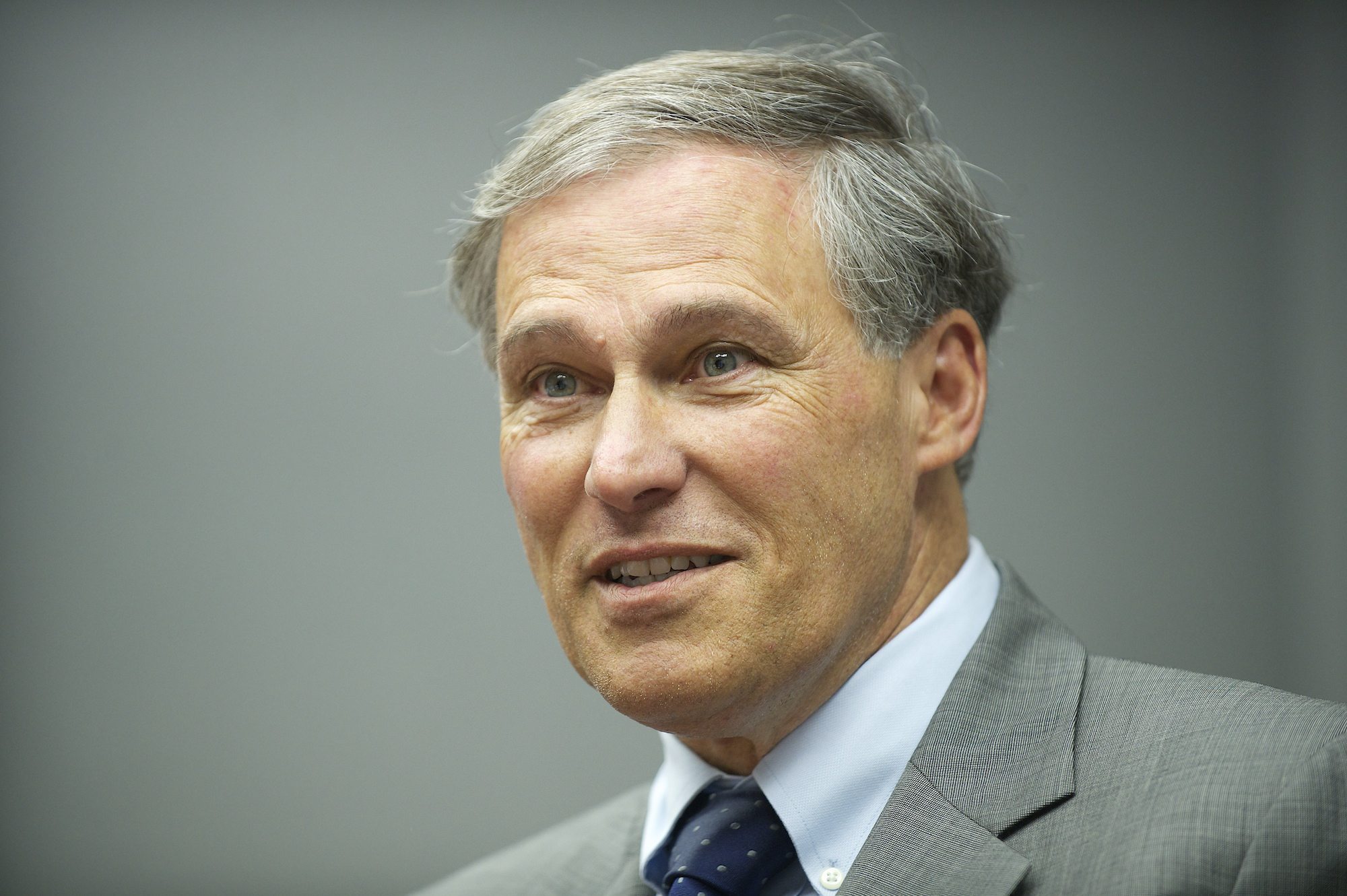Jay Inslee’s cap-and-tax scheme has not received the enthusiasm our green governor and his staff might have hoped for—in fact, the only people who have expressed enthusiasm for the scheme appear to be extreme “green” activist groups and Democrats walking the party line. During the public hearing on the cap-and-tax bill last week, the University of Washington—listed by the Department of Ecology as one of the 130 “polluters”—testified of the scheme’s potential impact.
UW officials informed lawmakers that the “cost to comply with this bill would likely be higher than” Ecology estimates. Officials expressed concern that the “cost increases experienced by other facilities included in the program could be passed along to the UW.” Additionally, pointing out that the “impact of the bill is largely dependent on the auction prices for allowances, which are unknown at this time,” UW officials warned that “if the auctions generate higher prices than those assumed here, the expenditure impact of the bill could increase substantially.”
Not only could the costs increase substantially, those increases would be felt far more in communities outside of King, Pierce, and Snohomish counties. A recent Washington State Wire op-ed explains why,
“Only 10 facilities [of the 130 listed by Ecology as “polluters”] are located in King County. The list includes companies with high value goods, including Nucor Steel, Boeing, the Cedar Hills Landfill, two cement plants, not to mention the University of Washington. Zooming out to King, Pierce, and Snohomish counties, there are only 30 facilities. In other words its not hard to see why the urban core is more favorable to the concept. Economic growth is up, and will likely out pace any job loss from these employers. But what about the rest of the state, where the economic picture isn’t so rosy?
“It’s outside the Puget Sound corridor where we see the strongest concentration of these companies. In many cases these companies are the key employer supporting whole towns and populations of people. Every significant rural food processor providing services to farmers’ crops, work to suppliers and tens of thousands of Latino employees in Washington state, is on the list. Alcoa, maker of aluminum that will be used in electric car batteries, the new more fuel efficient f-150, and a high paying employer in northern Washington, is on the list too…
“The cap and allowances are not based on any reasonable assumption of actual waste in these facilities or opportunities for greater efficiency. The cap is based on what was envisioned as system wide reduction targets put in place by the legislature several years ago. If your intent is to reduce carbon by a massive amount, realistically somebody has got to go.
“Indeed, Inslee’s cap-and-tax scheme appears designed to drive entire industries—those big-bad “polluters”—out of businesses. The cap-and-tax scheme places an overall allowance of carbon emissions for those businesses classified as “covered entities.” And, each year, that number is brought down. So, a targeted company must purchase the carbon units it needs to stay in business and comply with the new cap. Of course, “if one does not have equal units to their carbon emissions or be able to pay the millions in penalties, the business cannot stay open and must be shut down.”
The Washington State Wire likens the strategy employed in the scheme to a game of musical chairs. Each round removes the availability of chairs as the cap is decreased. And, “fewer chairs means fewer companies will exist.” Making the “game” all the more complicated, “more people can show up and buy a carbon unit, even if they don’t need it.” Theoretically, California billionaire Tom Steyer, “who spent millions on campaigns in Washington State, can buy carbon units and sit on them. Shrinking the available pot for everyone else.”
So, which Washington State industry would be the first to fall victim to Inslee’s cap-and-tax scheme? The Washington State Wire,
“Food processing plants, the anchor of rural agricultural areas, that provide processing for myriads of farms and their Latino workers will be eliminated. Potatoes aren’t worth much. The cost of shipping them farther for processing makes them worthless, so even relocating to Idaho may not save them.
“There is some recognition that this sort of thing will happen. In the legislation, 4% of all carbon units are set aside in a special “Allowance Price Containment Reserve” auction for companies who cannot afford to buy enough units to stay in business. If they still can’t afford it, they are gone. If the need for the struggling companies is 15%, it doesn’t matter, only 4% is available.”
The ugly reality is that Inslee’s cap-and-tax would have a greater impact on areas in Washington State that rely on a single industry for survival. How do Inslee and his extreme “green” allies respond to that outcome? Denial, of course. Cliff Traisman, lobbyist for the Washington Environmental Council, testified at last week’s hearing that the bill would put no one out of business. As the Washington Wire put it, “looking at the mechanics, that statement doesn’t pass the straight face test.”




